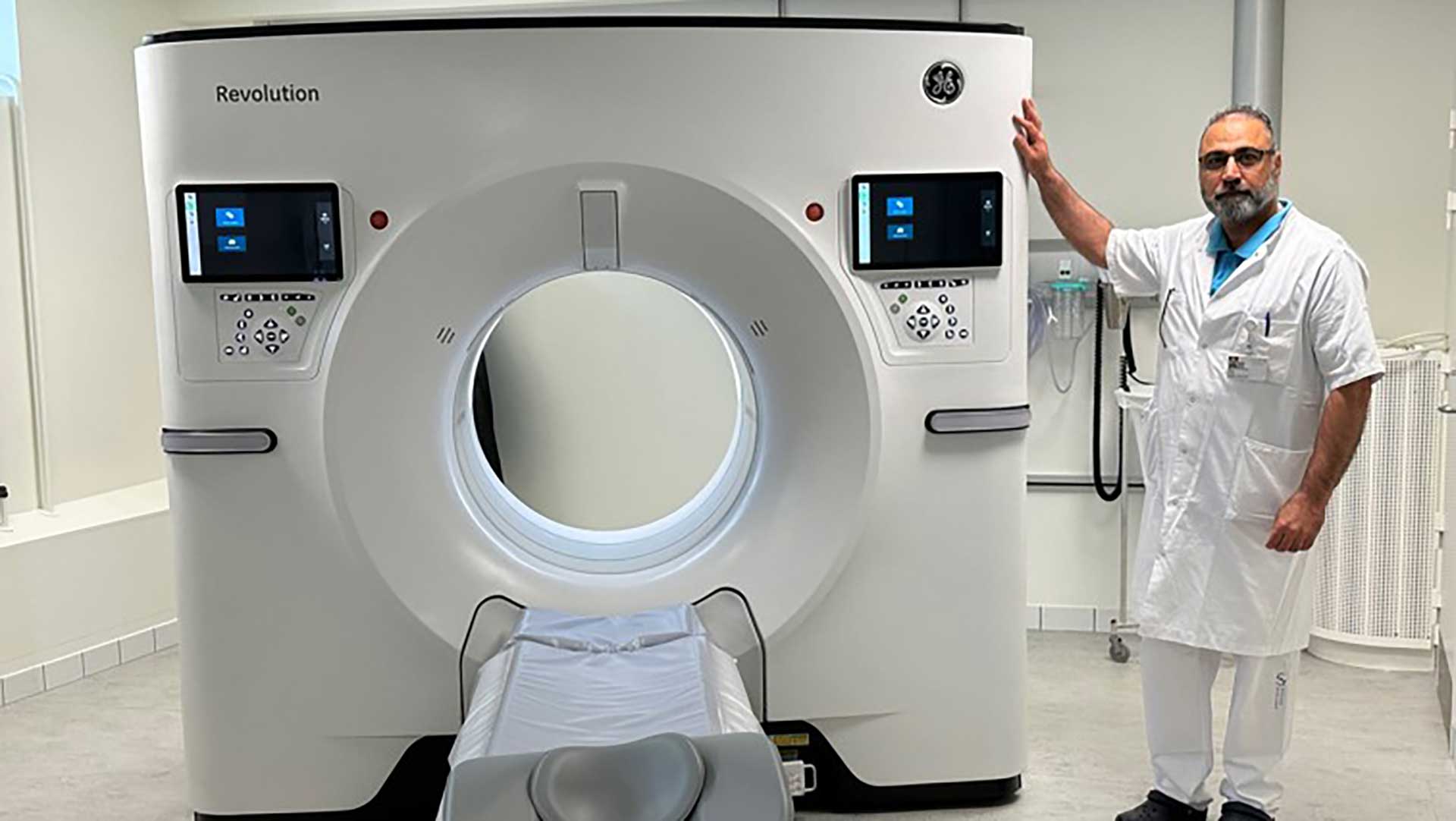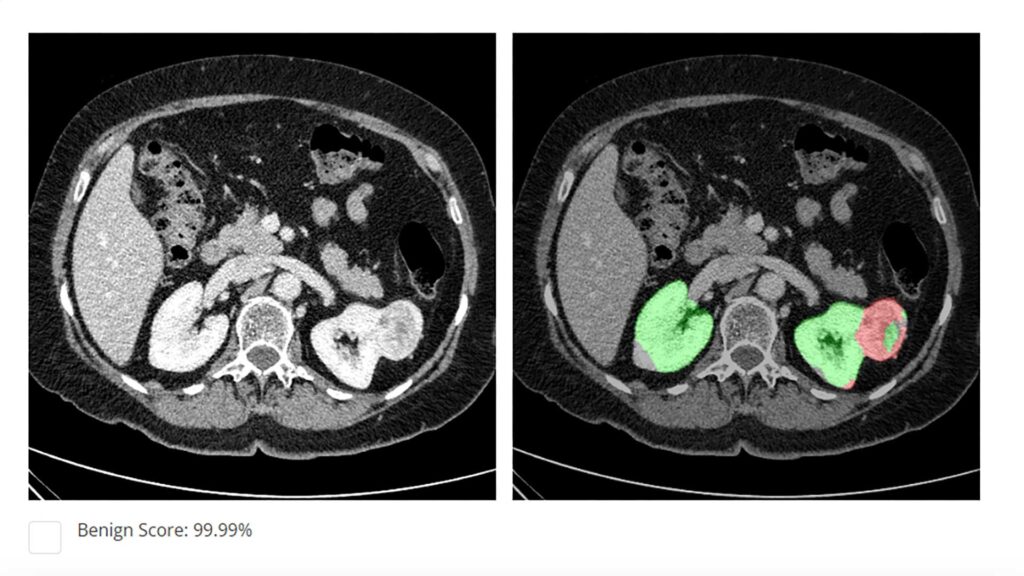2 July 2024
Every year, kidney tumor patients endure significant suffering due to unnecessary biopsies and surgeries. The current diagnostic methods leave much to be desired. Therefore, a research team from the University of Copenhagen, Roskilde University, and the Urology Department at Zealand University Hospital is developing an explainable artificial intelligence (XAI) to assist nephrologists and patients with accurate diagnoses.

Nessn Azawi with a CT scanner, which is used for scans of kidney cancer.
Kidney cancer is one of the most over-treated cancers in Denmark. The available scan images are often unreliable, with one in five CT scans yielding false positives. This means that up to 27 percent of kidney tumor patients undergo painful biopsies and surgeries without having cancer.
To address this, a newly developed AI model is currently being tested at Zealand University Hospital. It surpassed experienced doctors in diagnosing kidney cancer based on scan images. The problem is, however, is that doctors cannot explain the model’s conclusions. This hinders the AI model’s widespread adoption.
In the research and innovation project EXPLAIN ME, funded by the Digital Research Centre Denmark, a team of researchers from the University of Copenhagen, Roskilde University, and the Urology Department at Zealand University Hospital are working to interpret the model’s conclusions.
“Although it is tempting, we cannot simple leave such significant decisions to AI. We need to fully understand its neural patterns from the outset before we can implement it in practice,” says Nessn Azawi, Chief Physician at Zealand University Hospital’s Urology Department and Associate Professor at the University of Copenhagen.
As part of the EXPLAIN-ME project, Nessn Azawi and his research team have been working since 2022 to develop explainable artificial intelligence (XAI) that can guide nephrologists on when surgery is necessary, and crucially, explain why.
The 1,000 Danish patients diagnosed with kidney cancer each year rarely show symptoms until the cancer is advanced. The significant diagnostic uncertainty leads to many patients being over-treated. According to Nessn Azawi, AI-based diagnosis could reduce the treatment process by 2-4 weeks and save the healthcare system approximately 15-25 million kroner annually. These positive outcomes would be maximized if the technology is adopted throughout the Nordic region.
“We over-treat around 30,000 kidney cancer patients in the Scandinavian countries. Improving diagnosis would have significant positive effects for both society and the patients,” says Nessn Azawi.
Researchers have already tested the AI model at Roskilde University with promising results. The next milestone is to develop a model with a more detailed dataset that can provide nephrologists with accurate kidney cancer diagnoses supported by solid evidence. This has been the focus of PhD student Daniel van Dijk Jacobsen from Roskilde University’s Department of People and Technology for the past two years.
“The challenge is that we don’t know what the model is analyzing when it makes the diagnosis. It’s about identifying the patterns the model detects at the pixel level and then conveying that information to the doctors,” he says.
Thus, it has been essential to work across disciplines, incorporating ethnographic observation studies during patient interactions, participatory design, and ongoing discussions with the medical staff at Zealand University Hospital.
“I find that doctors are enthusiastic about exploring technological possibilities, as they are eager for assistance in achieving more precise diagnostics. They want to be able to compare the patient’s history with the machine’s diagnosis and make decisions based on a better foundation than they currently have,” says Daniel van Dijk Jacobsen.

By analyzing CT scans, artificial intelligence can assess the likelihood of whether a tumor is malignant or benign and assist doctors in determining if surgery is needed.
At present, the researchers are seeking additional funding to support their goal of implementing the model in Danish hospitals within a few years. DIREC has supported the EXPLAIN-ME project with 7.39 million kroner from 2023 to 2025. In addition to kidney cancer diagnostics, the project focuses on ultrasound scans of pregnant women and robotic surgery.
Explainable artificial intelligence aims to elucidate the rationale behind AI model outputs, thereby enhancing trust in their decisions. Machine learning models are growing in complexity, and they are increasingly relied upon for critical decisions. Explainable artificial intelligence enables users to discern the model’s training data and evaluate the accuracy of its outputs, among other capabilities.